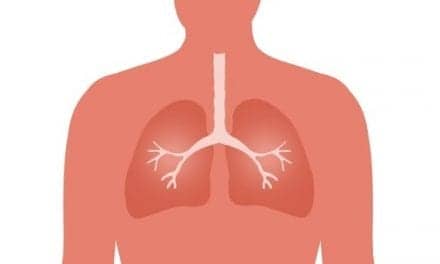Aradigm Corp recently reported positive results for its recently concluded Phase 2b study—Once-Daily Respiratory Bronchiectasis Inhalation Treatment (ORBIT-1)—with ciprofloxacin for inhalation (CFI, ARD-3100, Lipoquin™) in patients with non-cystic fibrosis bronchiectasis (BE).
The primary endpoint—the mean change in Pseudomonas aeruginosa colony forming units (CFUs) per gram of sputum from baseline to day 28—was met in the full analysis population. Results showed a significant mean reduction (p<0.001) of 2.942 log10 CFUs in the 3 mL ARD-3100 group and a significant mean reduction (p<0.001) of 3.842 log10 CFUs in the 2 mL ARD-3100 group compared to placebos. Pooled placebo groups had a mean reduction of log10 CFUs of 0.437. There was no statistically significant difference between the 2 mL and 3 mL ARD-3100 doses.
ARD-3100 was well-tolerated and no bronchodilator treatment was mandated before inhaled study treatments. In addition, there were no statistically significant differences between the active and placebo groups in the number of patients experiencing at least one respiratory treatment-emergent adverse event. The incidence of serious adverse events (SAEs) was low; there were a total of six SAEs and none of them were treatment related.
The double-blind, placebo-controlled ORBIT-1 trial was conducted in Australia, Canada, Germany, the United Kingdom, and the United States. Following a screening period, 95 patients, randomized into four groups (3 mL ARD-3100 n=32, 2 mL ARD-3100 n=30, placebo 3 mL n=15, placebo 2 mL n=18), were treated once-a-day for 28 days, followed by a 28-day off-treatment period.
“We are very pleased that we demonstrated that the 2 mL dose of ARD-3100 is equipotent to the 3 mL dose, with excellent safety and tolerability. A lower dose shortens the time of administration for the patients, which is always a welcome attribute in the management of chronic disease,” said Paul Bruinenberg, MD, Aradigm’s Senior Medical Director.
Source: Aradigm Corp









